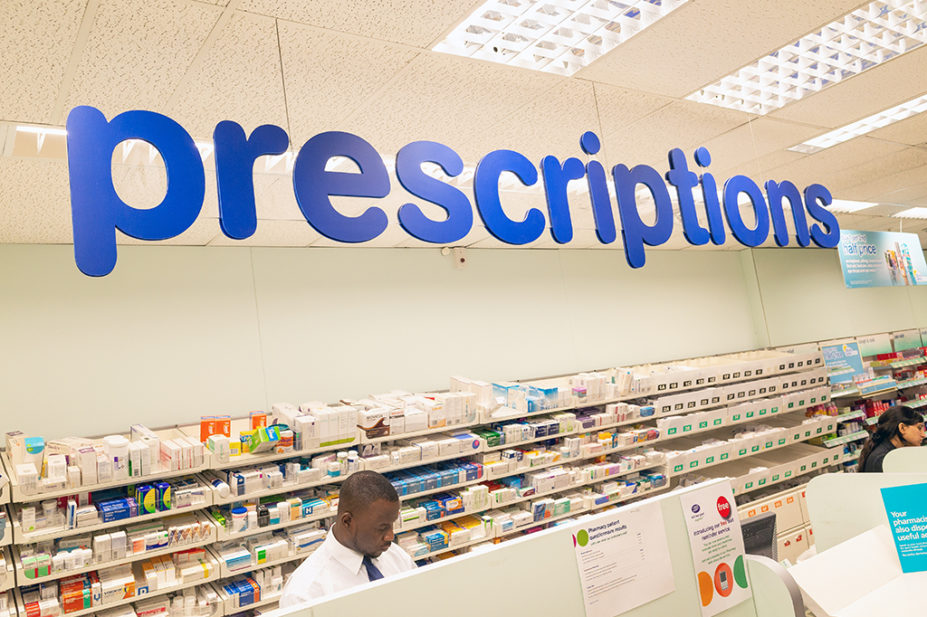
Shutterstock.com
Pharmacies across the UK could be able to dispense up to 10% more or less than a prescription calls for under government proposals to allow original pack dispensing (OPD).
The proposals, set out in a consultation document published by the Department of Health and Social Care (DHSC) on 1 November 2021, also call for epilepsy drug sodium valproate to always be supplied in original packaging regardless of any conditions set around OPD.
The consultation follows a commitment made in the ‘Community Pharmacy Contractual Framework for 2019/2020 to 2023/2024’, published in July 2019, to “explore and implement greater use of original pack dispensing to support efficient automation”.
In the consultation, the DHSC says pharmacy staff are currently required to split medicine packs to dispense prescribed quantities where a prescription is not equal to a pack size.
If the proposals go ahead, each of the devolved UK governments will be able “to consider how they want to implement this enabling flexibility within their respective NHS services”.
In the consultation document, the government said that allowing pharmacies to dispense medicines in their original packs “will help them to become more efficient and to free up their time for other tasks, such as providing clinical services to patients”.
“OPD will mean more prescriptions can be assembled using an automated process and so there will be synergistic efficiencies gained by use of hub-and-spoke dispensing and automation,” the document said.
“If OPD is not enabled, the potential efficiencies of hub-and-spoke dispensing will be curtailed, as automated processes rely on being able to dispense full packs.”
According to the document, the DHSC began “pre-consultation engagement with stakeholders” on the implementation of hub-and-spoke dispensing across legal entities in January 2021.
Under current legislation, only pharmacies within the same legal entity — for example, within a multiple — can dispense medicines from a central hub. However, in February 2021, the government passed primary legislation that paves the way for wider use of the dispensing model, pending further legislative changes.
Previous government proposals in 2016 to introduce cross-firm hub-and-spoke dispensing were shelved after pharmacy bodies expressed concern over the safety of the plans, with pharmacy bodies still questioning the cost-benefit case for the dispensing model.
The government’s consultation document also said: “By dispensing medicines in their original packs, it will be easier for pharmacies to ensure that patients will receive the patient information leaflet (PIL), which provides detailed information on the safe and effective use of the product.”
It added that the government has considered the risk of a 10% flexibility to deviate from the prescribed amount but explained that “repeat prescriptions make up around 77% of all prescription items”.
“Given this high percentage, an increase or decrease would most likely mean that the patient would access their next repeat prescription either a few days earlier or later than they would have done.
“However, judgement by the responsible pharmacist will remain an important part of the dispensing process,” it said, adding that the proposals will give pharmacists the choice to dispense original packs rather than making it mandatory.
The consultation also proposes only supplying sodium valproate in its original packaging to ensure patients receive a PIL as part of the Pregnancy Prevention Programme.
Gareth Jones, head of corporate affairs at the National Pharmacy Association (NPA), said: “[The NPA has] long supported a move to dispensing in original packs wherever possible, to improve both efficiency and patient safety.
“The UK is out of step with many other countries in terms of how dispensing is currently handled.
“As the medicines safety officer for the independent sector, we also support measures to enhance the safety of the supply of sodium valproate specifically,” he said, adding that the NPA “needs to study the consultation in detail before finalising our position on these proposals”.
The consultation runs until 13 December 2021.
Read more: Almost 90% of women dispensed valproate are given warning cards by pharmacists, NHS audit finds


